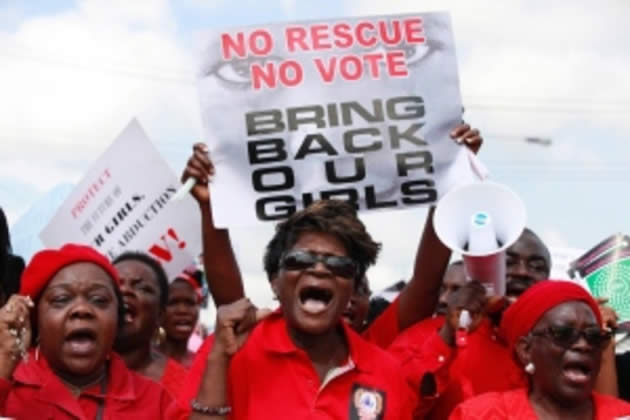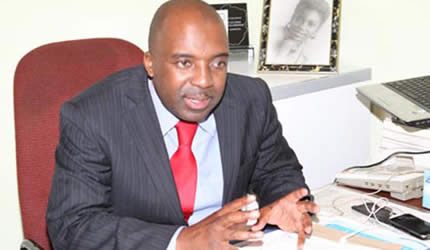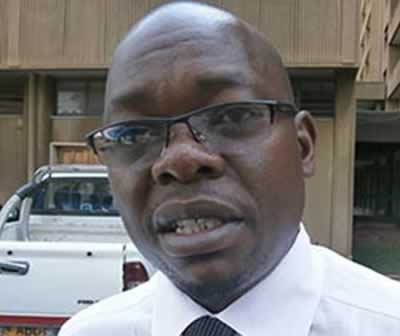Time Africa came to the party


Many in Nigeria have called on their government to do far more in the search for the missing girls. —Associated Press
Raynard Jackson Correspondent
The recent kidnapping of the Nigerian schoolgirls has been all over the news which is a good thing. We need to take the emotion out of this issue and have a heart-to-heart talk with the leadership of Africa. I am aware that Africa is not a country, but a continent made up of 54 countries. I am a big booster of the potential of all things Africa, but have been, and still am, a big critic of Africa. Everyone touts the potential of Africa as a continent, not just in terms of its vast natural resources (gold, diamonds, oil, gas, bauxite, etc.); but also in terms of its human resources.
Well more than half of Africa’s population is under 18 years of age. They have a “youth bulge” that can be a great asset or a great liability.
According to a report by the accounting firm of KPMG, Africa’s Gross Domestic Product (GDP) is expected to reach US$2,6 trillion by the year 2020. Africa also has the fastest-expanding labour force in the world; there are more than 500 million people of working age (15 to 64) in Africa, and that number is expected to pass 1,1 billion by 2040 and larger than China and India.
For the most part, my criticism of Africa has to do with its leaders and government bureaucrats, not the people. Many of the leaders are corrupt and selfish, interested only in the enrichment of themselves, their families and their cronies.
On the other hand, the people of Africa only want three things: education, healthcare, and a job. This seems to be very reasonable and pretty much a universal desire and one that should be easily achievable on the continent of Africa. But it’s not.
Africa reminds me of the kid who always wants to be treated like a “big boy,” but then constantly cries for his big brother to rescue him when he gets in trouble.
Generally speaking, Africa wants US investments yet it can’t provide security for its own people. And if it fails to provide security at that level, there is no reason to believe African countries can provide security for foreign investments.
What I find amazing about the abduction of the girls in Nigeria was the immediate cry from Africans for US involvement in finding the girls. Why was there no cry for the involvement of the African Union? The AU is composed of 53 African states and was created on July 9, 2002 as a successor to the Organisation of African Unity.
According to the AU’s website, its objectives are: to accelerate the political and socio-economic integration of the continent; to promote and defend African common positions on issues of interest to the continent and its peoples; to achieve peace and security in Africa and to promote democratic institutions, good governance and human rights.
It’s almost as though whenever there is a crisis on the continent, Africans reflexively call on the US or the United Nations for help, not the AU.
The AU has been around for 12 years, so no more excuses about it being a young organisation. If African leaders want to be treated as an equal player on the world stage, they must be willing to comport themselves in a manner consistent with that desire.
Africa continues to lack the understanding and sophistication for why they need to constantly engage with the American media. During the crisis of the kidnapped Nigerian girls, I have yet to see or hear of any engagement by the Nigerian Embassy or the AU with the American media.
Most of the so-called experts on Africa, as presented in US media, have been White. The media is partly to blame for this because of their continued insular approach and not looking for non-White experts on Africa.
There are plenty of Blacks who are experts on Africa. Gregory B Simpkins is staff director for the Subcommittee on Africa, Global Health, Global Human Rights, and International Organisations for the House Committee on Foreign Affairs and one of the foremost experts on Africa in the US
He has both a journalism and public policy background. He also is Black.
But I put more blame on Africa for continuing to believe that any media outlet is going to do for them what they should be doing for themselves, i.e. telling their own story. If Africa continues to govern with a Third World mentality in a 21st century world, they will continue to be ignored and marginalised.
Africa wants Americans to view their continent as a tourist destination and a developing haven for foreign direct investment, yet they can’t or won’t protect young girls attending school. Despite all this, I should be willing to take my family on a vacation to or invest my money on the continent? Really?
Africa gets most of its media coverage from their failure, not their successes. A simple Google of the word Africa brings up nothing but negative information. So, until African leaders truly understand the value of proactive media engagement in the US, they will continue to be viewed as third world and not worthy of serious business consideration.
The author is president & CEO of Raynard Jackson & Associates, LLC., a Washington, D.C.-based public relations/government affairs firm. This article is reproduced from the African Executive.










Comments